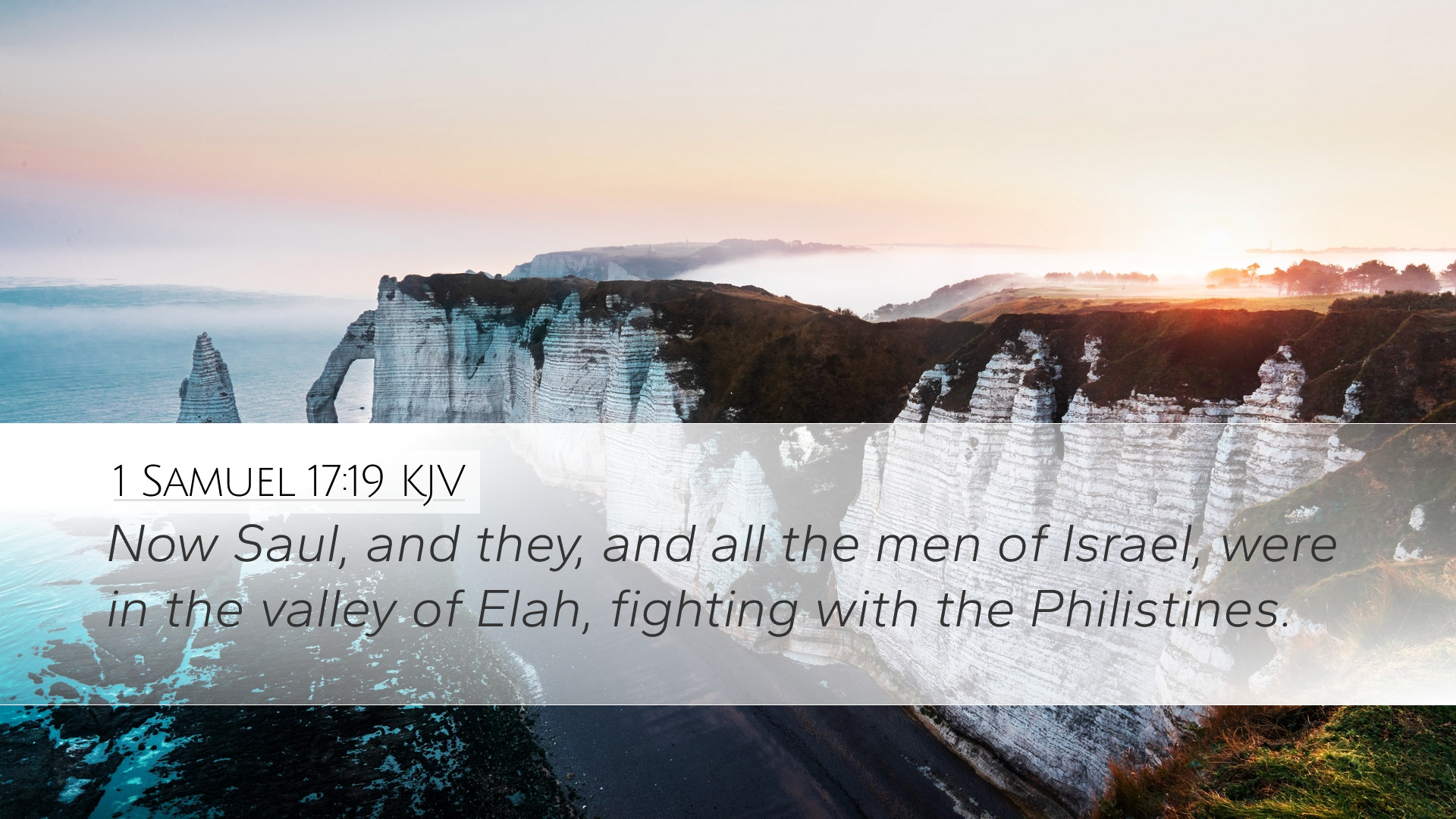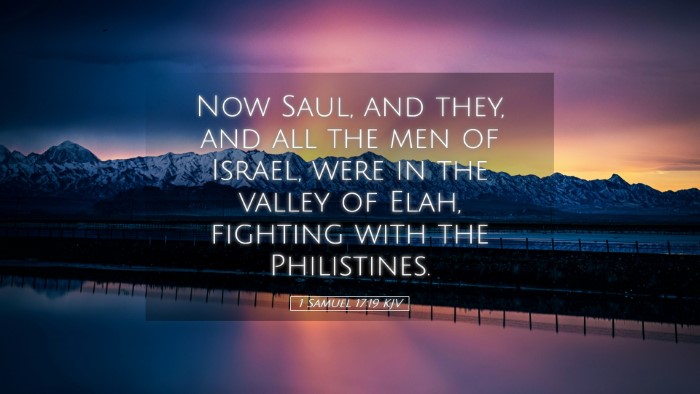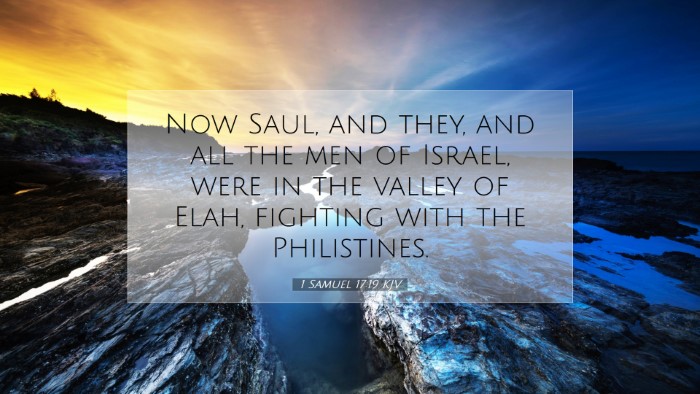Commentary on 1 Samuel 17:19
Verse Text: "Now Saul and they, and all the men of Israel, were in the valley of Elah, fighting with the Philistines."
Contextual Background
The battle between Israel and the Philistines in the Valley of Elah marks a significant moment in the history of Israelite warfare. At this time, King Saul, who had been chosen as the first king of Israel, found himself facing a substantial military threat from one of Israel's longtime enemies, the Philistines. The verse presents the precarious situation of the Israelite army, revealing both their physical circumstances and spiritual state.
Matthew Henry emphasizes the gravity of Saul's leadership during this tumultuous time, as he surveyed not only the armies but also the spiritual and moral decline of his own people. Saul was likely aware of his diminished relationship with God, which is crucial in leading Israel's forces.
Saul's Leadership
The text implies that Saul and the men of Israel were engaged in a physical confrontation, but also metaphorically illustrates the struggles of leadership under divine scrutiny. Albert Barnes suggests that Saul's anxiety and fears were palpable during this crisis, reflecting a king who understood the weight of his responsibility. His leadership was marked by trepidation, as he was not only contending against a formidable enemy but also against the overwhelming sense of divine disfavor due to his prior disobedience to God.
The Valley of Elah
The geographical mention of the Valley of Elah has profound implications. Adam Clarke notes that valleys often symbolize low points in spiritual and psychological terms. In this scenario, the valley could represent the low morale of the Israelite troops, their fears, and their doubts. The choice of battlefield itself may symbolize Israel's vulnerability. The clash with the Philistines occurs in a location that also serves as a 'testing ground' for faith and resolve.
The Philistine Threat
In the face of impending danger, the Philistine warfare strategies are notable. The arrival of Goliath, their champion, serves to encapsulate the ferocity of the Philistine attack. Matthew Henry points out that Goliath’s taunts were not merely physical challenges but a direct assault on the faith and trust of Israel in their God. His presence ignites fear and despair among the soldiers of Saul, illustrating the terror that often accompanies doubt and a faltering faith.
Clarity Amidst Confusion
Saul's struggles demonstrate a crucial point: leaders are often entrusted with the weight of their people’s hopes and fears. Albert Barnes argues that leaders must hold firm, particularly in moments when confidence is wavering. The presence of fear among the Israelites points to the central conflict within their hearts—trusting in God versus succumbing to worldly fears.
Theological Implications
This verse encapsulates a larger theological discourse regarding human leadership, divine sovereignty, and the spiritual warfare that accompanies earthly conflicts. The state of the Israelite camp reveals not only military opposition but also their relationship with God in times of crisis. Adam Clarke emphasizes that the skirmish signifies the struggle between good and evil, where faith must contend against the threats standing before it.
Leadership Lessons: Pastors and church leaders can draw important lessons from Saul’s response to fear and adversity. The atmosphere of uncertainty among the Israelite troops serves as a solemn reminder of the need for strong, faith-filled leadership in moments of distress. Leaders must look beyond immediate metrics of success and failures toward the deeper spiritual warfare at play.
Conclusion
As we reflect on 1 Samuel 17:19, it is vital for both leaders and congregants to recognize the importance of cultivating both personal faith and collective courage in the face of adversity. In doing so, we are reminded that the battles we face often serve as catalysts for strengthening our reliance on God. This narrative encourages modern believers to seek divine guidance and fortitude, trusting in God's sovereignty, even within life's challenging valleys.


